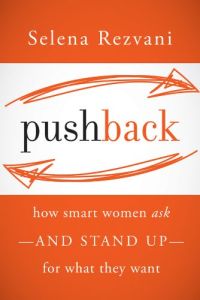Rejoignez getAbstract pour lire le résumé !

Rejoignez getAbstract pour lire le résumé !
Selena Rezvani
Pushback
How Smart Women Ask – and Stand Up – for What They Want
Jossey-Bass, 2012
Aperçu
Women can and should ask for more money, better assignments, flexible schedules and anything else they deserve.
Recommendation
The Bible says to ask and you will receive, yet many women are reticent about asking. Women now earn more advanced degrees than men, outnumber men in the workforce and control more than half the world’s wealth. But when it comes to workplace negotiations, instead of “pushing back,” many women accept less than ideal working conditions. Women’s leadership policy consultant Selena Rezvani offers a four-step formula that women can follow to improve their negotiation skills. While Rezvani’s practical advice is just as useful for men as it is for women, her analysis of many women’s attitudes toward negotiation is superbly accurate, and a lot of female readers will identify with her hypothesis. getAbstract recommends Rezvani’s self-advocacy skills, which women at all career levels can use to boost their negotiating confidence.
Summary
About the Author
Selena Rezvani, co-owner of leadership policy consulting firm, Women’s Roadmap, writes for The Washington Post and Forbes and appears on NPR’s 51 Percent: The Women’s Perspective.
























Comment on this summary